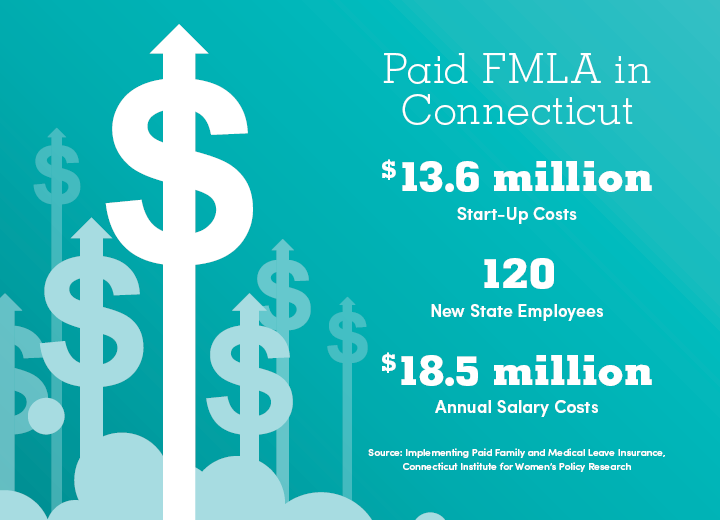Labor Committee Plans Paid FMLA Hearing

The General Assembly’s Labor and Public Employees Committee has reserved two paid family and medical leave concept bills for an upcoming public hearing.
While these proposals are only a sentence long at this point, past versions evolved into expensive mandates that required Connecticut businesses to incur a host of costly new burdens.

A 2016 paid FMLA proposal would have cost the state tens of millions of dollars in startup and administrative costs.
Who Pays?
Paid family and medical leave sounds great at first—until people realize that money from their own paychecks funds the program.
Last year’s version of the bill would have required employees in even the smallest of businesses to divert a portion of their paychecks into a statewide paid family and medical leave fund.
In return, the employee would be allowed to take up to 12 weeks a year for the care of their own or a family member’s illness.
The employee would be eligible to receive 100% of their pay during that leave—up to $1,000 per week.
While employees pay for a benefit they may never use—or one their coworkers could abuse—the program is by no means free to employers or the state.
While the labor committee approved the 2016 measure on a 9-4 vote, the bill died when the state Senate did not act on it.
Bureaucratic Burden
A study conducted by a Connecticut-based policy group that supports paid sick leave noted the 2016 proposal carried a $13 million startup cost, and would force the state to hire 120 new employees at an annual cost of around $18 million to run the program.
That’s a lot of money for a state that’s already facing annual deficits of about $1.5 billion in each of the next two years.
That doesn’t work out to much of a good deal for employees—all of whom will pay for the program in both taxes and payroll deductions.
Employees would be better off buying their own short-term disability policy, or saving a little extra in case of a medical emergency, as opposed to being forced to pay into a program they may never use.
The proposal carried a $13 million startup cost, and would force the state to hire 120 new employees at an annual cost of around $18 million.
CBIA will monitor these two concept bills throughout the legislative session.
We also expect that some lawmakers will insist there are no costs associated with this proposal and that it’s actually good for business because it will help retain younger workers.
But the reality is that too many Connecticut workers have fled our borders for states where there are no paid family leave programs—but plenty of jobs.
Connecticut lost 13,300 jobs in the last six months of 2016. Without businesses moving here or expanding in the state, the conversation about employee benefits is moot.
That's why lawmakers should focus first on creating jobs before worrying about the benefits those jobs provide.
For more information, contact CBIA’s Eric Gjede (860.480.1784) | @egjede
RELATED
EXPLORE BY CATEGORY
Stay Connected with CBIA News Digests
The latest news and information delivered directly to your inbox.


